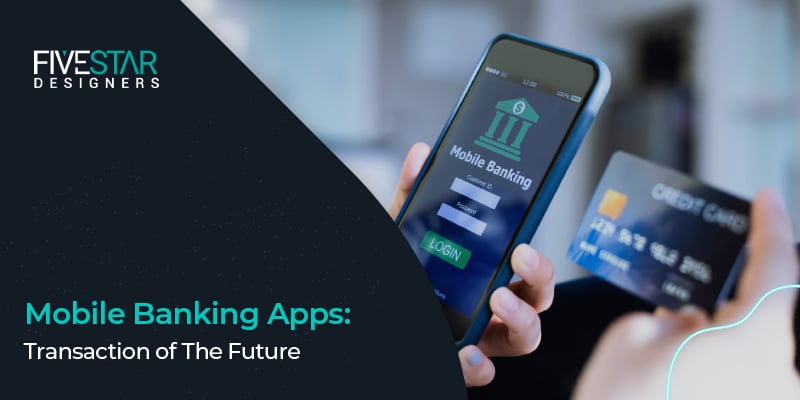Mobile payment apps have revolutionized the way we pay for goods and services in recent years, doing away with the need for cash and physical wallets. Peer-to-peer (P2P) payment systems by mobile app developers like Venmo and Cash App, as well as mobile wallets like Apple Pay, Google Wallet, and PayPal, have made digital transactions safer, quicker, and more convenient. The mobile app payment, their impact on the payment landscape, and the prospects for mobile payments are all examined in this blog.
Arise of Mobile Wallets: A Smooth Payment Process
Traditional payment methods are being replaced by mobile wallets due to the quick use of smart phones and mobile technology. By securely storing credit and debit card information, these apps let users make contactless payments with a simple tap of their phones.
Accessibility
Mobile app agencies have now made it quite easy for consumers to execute transactions using mobile payment apps rather than carrying cash or real cards.
Reliability
Secure transactions are guaranteed by features like tokenization, biometric authentication (such fingerprint scanning), and encryption.
Extensive Utilization
More than 2 billion people use mobile payment apps worldwide, according to latest estimates, with Apple Pay, Google Pay, and Samsung Pay dominating the market. Mobile wallets have become a popular option due to their simplicity of use, especially among younger, tech-savvy consumers.
Peer-to-Peer (P2P) Payments: Revolutionizing Money Transfer
P2P payment apps like Venmo, Cash App, and Zelle, in addition to mobile wallets, have revolutionized the way consumers move money to friends, family, and even businesses. Without using cash, cheques, or bank transfers, customers can pay money instantaneously with a few touches.
Immediate Transactions
Money transfers have been transformed by P2P payment apps, which enable quick and easy transactions.
Social Incorporation
Some mobile app agencies have created apps, such as Venmo, have social features that let users add messages and emoticons to transactions or share payment information, making money transfers more unique.
Increased Utilization
Many of these apps, which were first created for personal transactions, now facilitate business transactions as well, making it simple for small firms to take payments.
Mobile Payments Are Transitioning Commerce
Mobile payment apps have transformed entire industries, particularly retail and e-commerce, going beyond individual purchases.
Online and In-Store Purchasing
Mobile payments are becoming a crucial component of the consumer purchasing experience as they are incorporated into more and more physical establishments and online platforms. Customers can now use their smart phones to safely and swiftly pay for their goods.
Worldwide Presence
Transactions across borders are being made easier by mobile payment systems, which speed up and lower the cost of foreign transactions. Popular options for cross-border payments include apps like PayPal, Alipay, and WeChat Pay, especially in places like China where mobile payments are common.
Improved User Experience
In order to improve the shopping experience, retailers are including mobile wallets into their loyalty programs. This allows customers to earn and redeem rewards straight from their phones.
The Significance of Blockchain Technology and Cryptocurrencies
Blockchain technology and cryptocurrencies are also finding their way into mobile payments. Mobile payment apps are progressively integrating crypto-based transactions as a result of the growth of digital currencies like Bitcoin, Ethereum, and stable coins.
Segregation
A decentralized substitute for conventional payment methods, cryptocurrencies have the potential to lower costs and improve privacy.
Universal Accessibility
With the help of cryptocurrencies, an entirely international payment environment may be established, allowing individuals from many nations to conduct business without being constrained by banking institutions or currency rates.
Blockchain Inclusion
Blockchain technology is being used to make sure that transactions are safe, transparent, and unchangeable. This is particularly crucial in sectors like supply chain management, banking, and insurance.
Mobile Payments: The Next Generation
Future digital transactions are anticipated to be shaped by a number of trends and breakthroughs as mobile payments continue to expand by the number of E-commerce App Development Companies.
Learning Algorithms And Artificial Intelligence
By examining transaction data and trends, these technologies will enhance fraud detection and provide individualized payment experiences.
Biometric Verification
With the intellectuals of mobile app developing companies and their perceptiveness, expect to see more biometric features, such as facial recognition and voice authentication, further enhancing security.
Faster Connectivity
With the rollout of 5G networks, mobile payments will become even faster and more reliable, providing greater opportunities for real-time transactions and seamless integration in everyday life.
Online Payments in Emerging Markets
In developing nations with weak traditional banking infrastructure, mobile payments are set to grow much more. P2P payments and mobile wallets have the potential to close the gap in financial inclusion by enabling those without bank accounts to engage in the global economy.
The Generation of Virtual Wallet
The cashless revolution is led by mobile payment apps, which provide unparalleled speed, convenience, and security. We should anticipate even more innovation in payment methods as technology develops, with blockchain-based solutions, P2P networks, and mobile wallets setting the standard. In addition to ease, the future of mobile payments will involve building an environment that makes financial transactions more widely available, safe, and effective.



